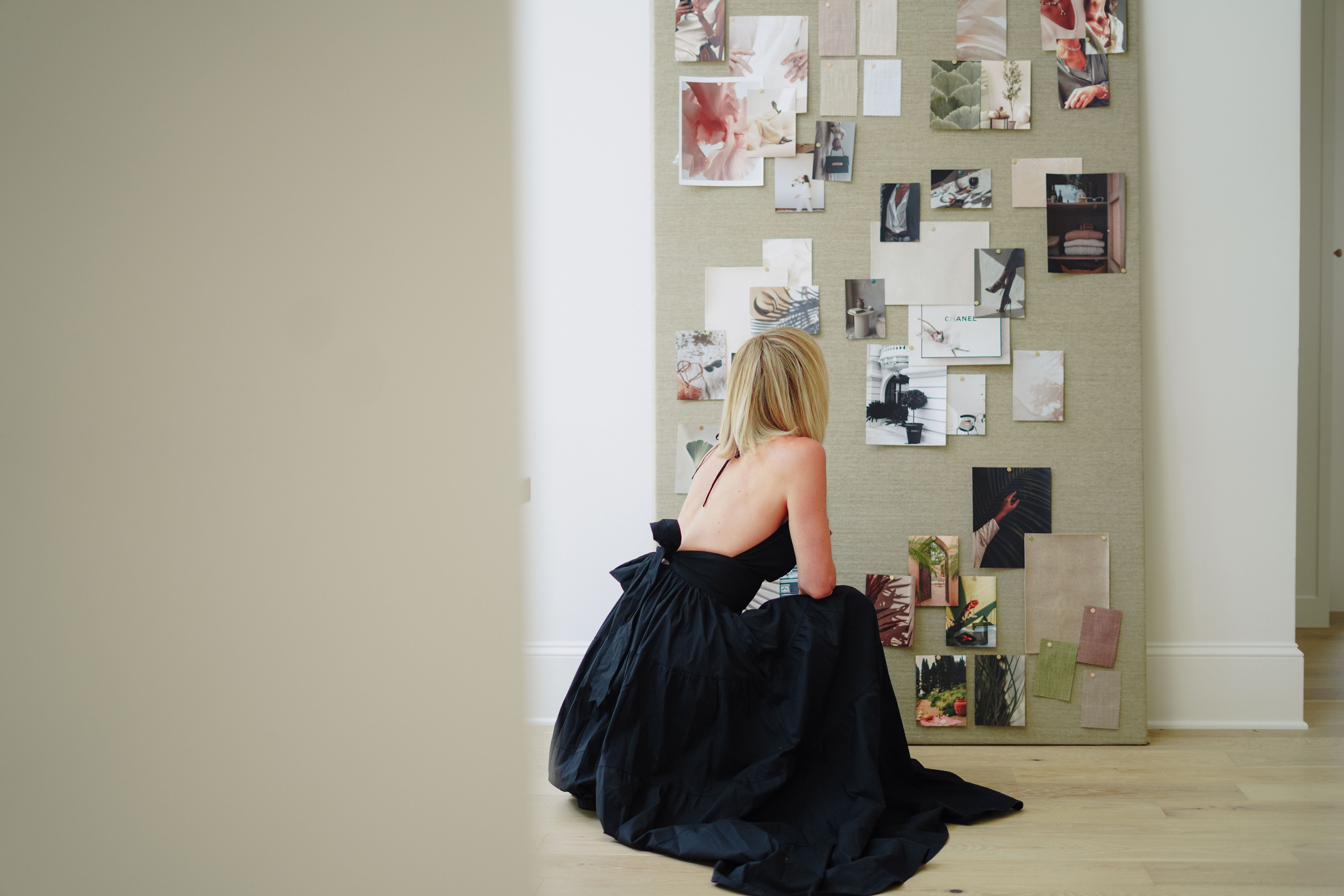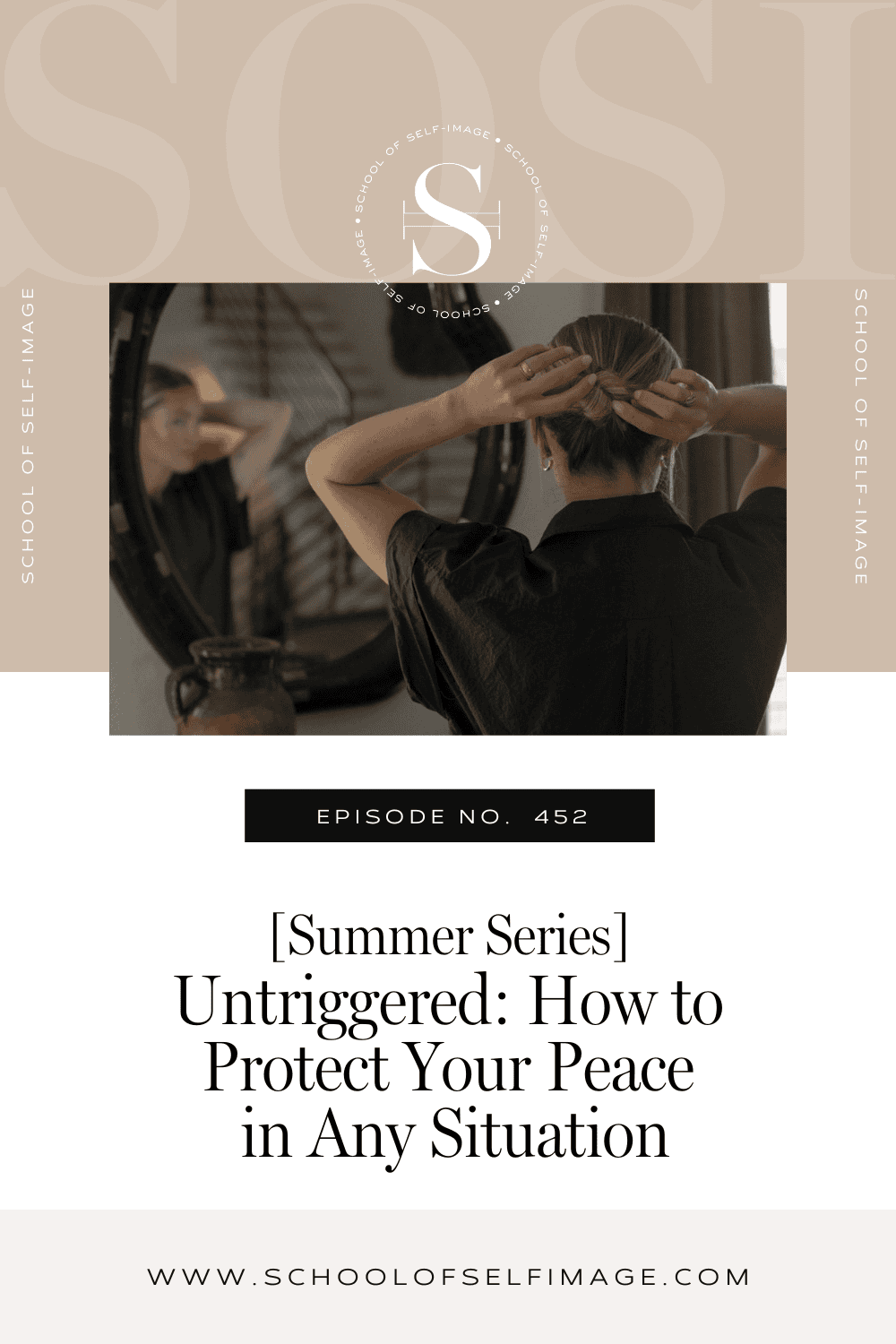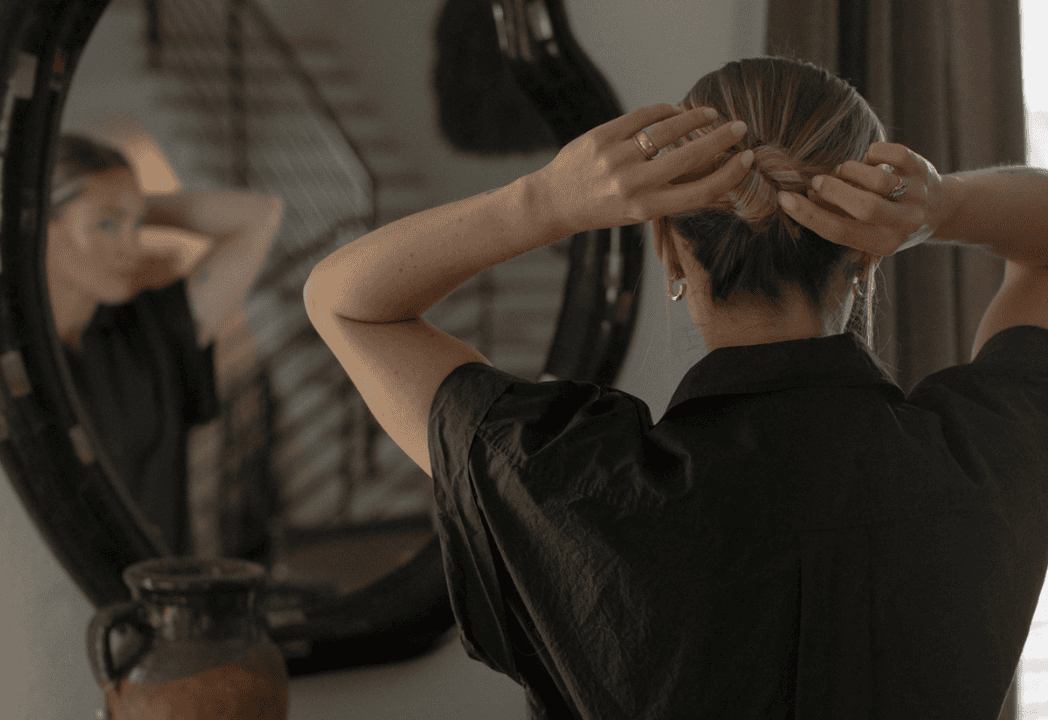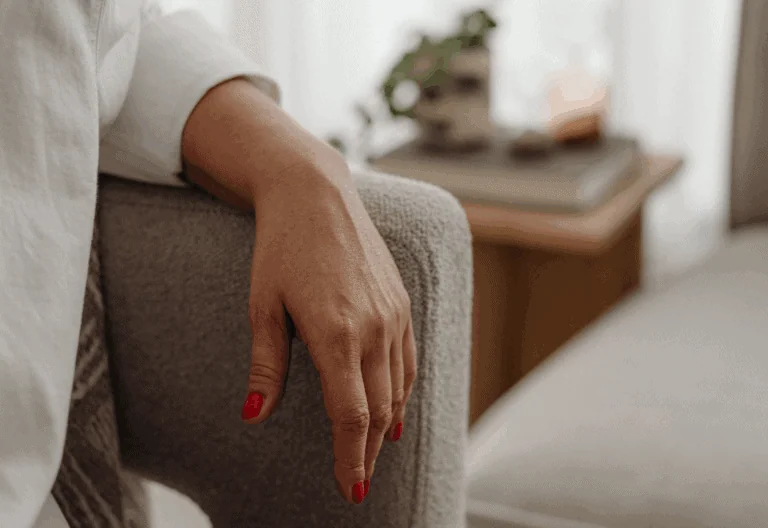

Becoming Untriggerable: A Journey to Emotional Freedom
A trigger is defined as an external or internal event that evokes a strong emotional response, often negative, such as anger, sadness, or anxiety. Tonya Leigh shares her personal experience of being triggered during her father’s celebration of life, where she felt intense anger due to a perceived boundary violation. This moment of rage was not just an isolated incident; it reflected deeper feelings and unresolved issues within her.
Tonya encourages listeners to view triggers as invitations to look within themselves. Instead of reacting impulsively, we can take a moment to pause and reflect on why we are feeling a certain way. This self-exploration can lead to profound insights about our past experiences, beliefs, and values.
Tune in for insights on managing emotions and fostering a peaceful mindset.
Episode Details:
00:47 – Personal Trigger Experience
03:05 – Understanding Triggers
05:02 – Lessons from Triggers
07:00 – Loving Difficult People
10:46 – The Quest to Be Untriggered
14:25 – Common Reactions to Triggers
18:41 – Childhood Reactions to Triggers
23:04 – Steps to Handle Triggers
32:00 – Achieving Peace Through Triggers
Useful Resources:
- Click HERE to Download the Free Podcast Guide
- Click HERE to join the Membership
- Click HERE for a FREE download
- Click HERE to sign up for our weekly newsletter, The Edit
Connect with Master Life Coach Tonya Leigh:
Episode Transcript
Welcome to The Summer Series, and I need to ask you a question. When was the last time you were triggered? If you’re like a lot of the world, probably recently. But in this episode, I am going to really challenge you to set the intention to become untriggerable at least most of the time because your peace is important and you need to learn to protect it, so let’s dive in.
Welcome to the School of Self-Image, where personal development meets style. Here’s your hostess, master life coach, Tonya Leigh.
Hello, my friends. Welcome back to the Summer Series where we are revisiting some episodes from the past. And today’s episode is a result of me getting extremely triggered last week. I am someone who today rarely gets triggered. It takes a lot to trigger me because I value my peace more than anything else. But last week during my father’s celebration of life, actually, I found myself on the pew of the church in a full feeling of rage inside of me. So let me tell you what happened. We had already discussed as a family, my dad’s celebration of life. We didn’t want to call it a funeral. We wanted to celebrate the man he was. We wanted to celebrate his history, the funny stories, just all of the ways that he blessed his family and his community. And you have to understand, I grew up in a Pentecostal Holiness Church, so funerals typically are full of a lot of preaching, a lot of the Holy Spirit. It can get wild.
And I just told my mom, I’m like, “You know what, mom? Dad’s lived his life in such a way that we don’t need to do all that. I want this to be about dad.” And so she agreed and she had asked the ministers who were speaking to really keep it about dad and his life and his legacy. Well, let’s just say one of the ministers got up to speak and quite early on I thought, oh no, this is about to go off the rails. This is not what my mother requested. And as he spoke, I literally could feel heat coming up into my chest and I’m sitting at my dad’s celebration of life pissed off. I was so angry, and I guess he looked over at the family and I just had my head in my hands. And then I looked over at my mom and she was doing the same because she was feeling the same thing I was. Now, thank goodness he brought it back. He brought it back.
But in that moment, you all, I felt like I could hit someone. I was so triggered. And I thought about it. Why was I so triggered? And in that specific situation, it was because I felt like a boundary was crossed. My mother was very clear as to what she wanted, and it was almost as if he was about to say, it doesn’t matter what you want, I’m doing my own thing as if it was his show. Now let me just say, I love this man. I really do. He’s an incredible human and we as humans, we make mistakes, right? And I sat there and I thought, oh my God, my dad would not want me to feel this way. He would not. My dad was such a peaceful man. He would not even be thinking one bad thought right now, but the reality is, and we never want to dismiss what we’re truly feeling, I was completely triggered. And on top of that, I felt completely helpless in the moment because I didn’t want to get up and make a scene.
Now, as I said, he quickly brought it back and got things back on track as to what my mom had asked him. And so I was able to let it go. Now, had it not gone that way, I had already planned to pull him aside after the service and say, “Hey, what happened? Let’s have a discussion as to why you didn’t honor my mother’s wishes as it relates to my father’s service.” But I felt like he deserved a little grace because he did self-correct. But what about those moments where people don’t? Boundaries are crossed, or sometimes the trigger is not even about a boundary crossing, it’s just about someone highlighting maybe an insecurity within us that we haven’t healed. That’s the thing with triggers. There’s always a lesson within them. And if you’re always reacting to them, you’re never drilling down to what is it truly that’s being asked to be looked at and examined. There are times in my life where people would say things like, “Oh my gosh, you’ve been married twice?”
And I would be completely triggered. Triggered with shame, triggered with just a lack of self-worth. And I realized it was because they were triggering a belief that I had about myself, that I was a failure in relationships, that I was worthless when it came to marriage. And the moment I healed that, someone can look at me now and say, “You’ve been married twice?” And I’m like, “Yeah, I sure have,” and feel absolutely nothing. That’s why we need to learn how to examine our triggers. We need to learn how to coexist with humans because humans, we all have our different thoughts. We all have our different beliefs. And if we are always being triggered by other people, here’s the one thing that made me want to prioritize dealing with my triggers. And when you are so easily triggered, you are out of control in your own life.
You give everybody else control over your emotional state. And I don’t know about you all, but I don’t like feeling like I’m controlled. I like to feel in control of who I am. And the way most people go about it’s like, let me change you. You need to change so that I can feel better, but that is not how the world works. And so for me, I wanted to become an untriggerable person so that I could feel like I have self autonomy and that I control myself. Now, listen, as I just demonstrated, I still get triggered. I am not completely untriggerable and we’re not going for perfection. What I want to encourage all of us to do is just to be aware. When you’re triggered, it is an opportunity to go within and to look at yourself. Did you allow someone to cross a boundary and you didn’t speak up for yourself?
Is someone triggering a feeling of shame or insecurity? Every trigger can be your teacher. What we’re doing within the membership next month is we are doing a whole month on loving difficult people. Yes, I want you to think about the most difficult person in your life, and I want you to imagine loving them. That does not mean you are going to be spending time with them. It doesn’t mean that you have to allow this person back into your life, but when you allow other people to affect your moods in such negative ways, you have given them your power. And what I’ve noticed is that when I am operating in that way, it affects every area of my life. It affects my business, it affects my other relationships, it affects my money, it affects my well-being, it affects everything because energy is your greatest resource. And if you are spending time avoiding, if you’re spending time reacting, if you’re spending time hating another person, that is energy being channeled in a way that does not serve you.
You free up that energy and all of a sudden you get your creativity back, you get your zest back, you get your joie de vivre back because you are saying to yourself and to the universe, I am not going to let other people determine how I feel. No one gets to decide how I feel but me. And if you are having problems loving difficult people, it’s probably because those people trigger you. And understandably, it may mean you need to put up some boundaries, you may need to distance yourself. But what I’m offering you is that you don’t have to have resistance around them. You don’t have to have hatred towards them. You can still love them, but as I say, you might want to love them from afar, but you get to experience the feeling of love. It doesn’t matter what they’re feeling, you get to choose that for you.
And so if this is work that you're being called to do, come and join us this month within the membership. You can go to sosistaging.wpenginepowered.com/join. We're going to be doing some deep work around this, and I'm really excited to see the freedom that members are going to experience from doing this work. Imagine not harboring resentment, anger, imagine just feeling love even towards the most difficult people. And for any of you all listening to this and thinking, I don't want to love this person, just ask yourself why? Because they don't feel you're withholding of love. You do. You're not doing this for them, you're doing it for you so that you get to feel that. And it's not easy. There are two people in my life right now that I'm finding very difficult to love, and I'm sure I'll be sharing more about this in the membership, very difficult to love because of betrayal and some other things and it's only hurting me.
They've triggered something within me that I need to look at and deal with so that I can get back to a state of love because that's the state where all of the things that we desire is hanging out in. And so I'm really excited for next month's topic. It's going to be deep and rich and so, so rewarding. So again, come and join us within the membership sosistaging.wpenginepowered.com/join and I hope you enjoy this episode of being untriggered. Just so you all know, I choose these topics months in advance. I sit down with my creative director and we really think through what the theme of each month is going to be in terms of the edit and choosing podcast topics that I feel will be beneficial to you. It just so happens that the topic that I'm covering today is also beneficial to me. It's something that I am working through right now, so it couldn't be more perfect, and I'm really excited to share it with you.
Now, I want to just start out by saying that I believe the quest to being untriggered is a beautiful one because it means that you are healing yourself because every trigger is just showing something within you that needs to be looked at with love and compassion and healed. That’s it. And I don’t know, for us mere mortals, that it is possible to be completely untriggered because as we go through life, we experience wounds and hurts and disappointments. But the quest to untriggered, I think, is a beautiful one. And so that’s what I want to talk about today. I want to talk about how I personally deal with triggers and how I am dealing with them in new ways because the ways that I have dealt with them in the past have been very protective, but I don’t know that they have really helped me to grow and evolve at the level that I want to grow and evolve at now. So let’s start this conversation now by talking about, what is an emotional trigger?
It’s when some kind of external event, or even an internal one, you can start to think about something and feel triggered, but it evokes this strong emotional response. And it can be a negative trigger, so you start to feel anger or sadness or anxiety or other intense emotions, or it can be a positive one where you start feeling intense joy and happiness and excitement. For the purpose of today’s episode, we’re going to be talking about those negative triggers. And over the past week, I have been triggered several times by someone that I love deeply, and it’s given me an opportunity to really look within myself at what’s going on and to work through some deep, deep wounds that quite honestly, you all, I thought I was done with, but apparently I’m not. And sometimes I feel like, and this is just a total side note, I feel as if we can put people on pedestals, especially our teachers, our coaches, our mentors, and we can start to think that they are perfect and they have the answer to everything.
And I never ever want to place myself in a position where I don’t share my humanness. If you are working with someone and they have created this facade, this illusion that they have it all figured out, I’m just going to encourage you to realize that they are human just like you, and we are all learning and we are all figuring things out. And when I’m having a hard time, I typically don’t like to share until I’m on the other side of it because I don’t want to dump my problems on my community. And so I often share after I’m on the other side of it, but it just so happens that I’m in it right now. I’m in the muck of it and I am working through some really deep stuff and it happens to coincide with today’s topic. And so I’m just going to share with you my process, if that’s okay. And if it’s not, you can just turn off the episode right now.
I love you, you can come back next week, but if you want to learn, maybe you’re triggered right now. I really, really hope that this episode will support you. So let’s start this conversation out by talking about how we react to triggers. And I have identified six ways that most people react to a trigger. The first one is, some people fight. This is when they react. They may say hurtful things. They may even get physical, they get very, very aggressive. Other people flee. It’s so uncomfortable that they just want to escape. They want to run, they want to get out of the situation to protect themselves. Some people freeze, meaning they just stand there and they do nothing. And oftentimes when you’re freezing, what you’re doing is you disconnect from your body and the feeling of overwhelm just causes you to shut down, making it very, very difficult for you to express your feelings.
You just stay put and you just hope that it goes away really quickly. Another way that sometimes we respond to a trigger is that we fawn, meaning we people please, we say whatever we need to say to get the other person to calm down or to stop whatever they’re doing or to win their affection, we people please at our own expense. The other thing that we may do is fault. We will blame the other person or we’ll blame ourselves for what is happening. Those five reactions are from our trauma, and they all probably protected us in the past. I was having a conversation with Vons not too long ago when we were talking about this because Vons’ reaction when he’s not aware is to fight because he grew up in a childhood where if he did any of these other things, it would literally get him killed.
If he would flee, they were going to find him. If he froze, he was going to get beat up. If he people pleased, he was going to be seen as weak. If he found fault or didn’t stand up and take responsibility, he would be seen as weak. And so his reaction and what he learned to do from a very young age is fight. And it’s so interesting even now, I rarely see him in that energy, but if he’s backed in a corner, I can see where this is the energy and which he responds to a trigger and it’s so understandable, right?
But what’s interesting is we have this conversation how he sees that as a strength to being a fighter. And I tried to explain to him, I’m like, but listen, when I was a child, if I tried to fight, I would get in deep, deep trouble. What served me and what protected me was to either freeze, and this comes when you have abuse, right? You freeze and you just hope it’s over really, really soon. Or to fawn, to people, please. Those were my strengths. Those kept me safe. And so I share this with you all because no matter which of these that you may tend to go to when you’re triggered, don’t judge them. They all kept you safe as a child. They were your strengths. They were not your weaknesses. However, as we grow up into big people, into being adults, it’s time that we step into the sixth option, and that is to face our triggers.
So we can fight, we can flee, we can freeze, we can fawn, we can find fault, or we can face the trigger and we can use that trigger to evolve us to the next level. To really look at, what is wanting to be healed here? What do you need to recognize? What part of you needs a hug? What part of you needs to step up and claim your power? And so, I want to share with you how I’m dealing with my current triggers. Now, to be clear, in the past, my response has typically been to flee. So to get away from it and try to never be around it again, and that is one option. But eventually, if you don’t heal what that trigger is, it’s going to pop up somewhere else. My other common reaction has been to just freeze. And the way that looks for me is just to hope it goes away really soon.
Just take some deep breaths and close my eyes and just pray that it leaves. And because I experienced abuse as a kid, this makes sense. This is how I dealt with it, because I didn’t have the tools that I had now, I didn’t have the autonomy. I was a child depending on adults. And so I would just literally close my eyes and just pray, let this be over really soon. Then the other way was to fawn. Tell people how amazing they are, see what they need and to give that to them so that there wouldn’t be a confrontation. However, these days, my work is to face it, face the trigger head on, not to be afraid of it, but to use that trigger to open me, to teach me, to guide me, to help me learn and help me to evolve to the next level. So as I was saying, I recently have been triggered.
Someone I love deeply said something that really hurt, hurt my heart. Now, we could argue that my thoughts about what this person said is what hurt my heart, and that is true, but I don’t believe in us gaslighting ourselves and trying to pretend that we can just change our thoughts and be better, because sometimes maybe it’s not about us changing our thoughts. Sometimes these triggers are to let us know, hey, this behavior isn’t okay. Sometimes, however, it is something that we need to change. And many times that has been my process of realizing, oh, this has nothing to do with that person, it has everything to do with me and something that I need to heal. But in this situation, I’ll tell you what I did. So this person said something and I could just feel for the first time in a long time, just anger.
And that’s not typically an emotion that I feel. I feel anger when I feel like I’m backed in a corner. And I think what had happened is that stuff started to add up that I was just fleeing from or freezing from or fawning over, and I hadn’t addressed it, and that was on me. I told you all, this is going to be a very vulnerable post for me, but I want you to see my very human side. This is it. And so when the person said this thing, I got so angry, I could feel heat in my body, and I noticed what I did. I said something immediately. I’m like, “What did you just say to me?” And we exchanged some words and I could feel myself wanting to flee. I was afraid of what I was about to say, but I did the following steps, and this is what I encourage you to do.
And listen, we’re going to mess it up. We’re not going to do it perfectly. We’re going to say things we don’t mean, we are going to screw up. That’s just part of being a human. It’s part of this process. So the first thing that I did after we exchanged a couple words, which goes to show you, you can start this process at any point. You can be in the middle of an argument after you’ve been triggered and do this, okay? I took what I call a sacred pause. So that’s step number one. Take a sacred pause, which means to take a deep breath, and if possible, remove yourself from the situation. Now, this is very different than you just running away because the intention is different, right? The intention is I want to remove myself for a moment just so I can get myself together. It’s not like I want to run away forever and never address this, but I need to remove myself so that I can go within.
So that’s step one. I even use this with my clients who overeat. I’m like between that moment of wanting to eat, just take a pause and go in and check with yourself. Then if you want to eat, great, do it. But just take a moment. And so step number one, when you’re triggered, take a sacred pause. You may be triggered by your husband. You may be triggered by your best friend. You may be triggered by your children or your mother-in-law. It doesn’t matter. Just take a breath and step away if possible. If not, you can just do this internally with the person sitting right in front of you. You don’t have to say anything. You don’t have to react. You can just be within yourself. Step two is the acceptance. The acceptance of how you feel, knowing that it is justified. Every emotion that you feel, do not shame yourself. If you’re angry, do not shame yourself. If you are frustrated, do not shame yourself if you are feeling afraid or anxious.
Accepting, I am a human being, having a human emotion right now, and this emotion is here to teach me something. That is step two because if you are shaming yourself on top of the trigger, you’re just keeping yourself in this emotional loop where you can’t evolve because you can’t learn and grow if you are shaming yourself for being a human being. And so for me, I just poured so much love on myself in that moment because part of me was like, Tonya Lee, come on. Are you really going to be upset about this? Just get over it. Just change your thoughts. And I was like, oh, no. Hell no. I’m not changing my thoughts about this right now. I’m having this for a reason and I’m going to allow myself to have it. I’m going to allow myself to be a human, and I’m going to experience this emotion that I’m having with so much love and so much compassion.
And I will tell you all, if you all would just do that, your life would change in the most beautiful ways because I have a feeling that a lot of you all are beating yourself up for these emotions that you’re having, and you’re having them for a reason.I think about all of us as little children, I was even thinking about, well, I’ll get to this on the final step. So just forget I was about to say that because it’s really good, but I will share it, I promise. So step number two is just the acceptance. Then we go to step three, which is the inner exploration. And this is where you get to ask yourself things like, why am I feeling this way? What happened to me as a child that makes this make sense? Am I overreacting? Has a boundary been crossed? And if so, why do you allow this to happen? What are you afraid of? What do you need right now? What are you thinking right now?
Because sometimes you can look at your thoughts and you can see the absurdity of them. For example, if you’re having an argument with your spouse, a thought may be he or she doesn’t love me. When you really examine it, you’re like, oh, wait, I know they love me. But in that moment, that one thought can feel so triggering. So it is important for you to know what you’re thinking and see if there are any thoughts that just are not logical, but are understandable, right? It’s understandable in that moment to maybe think that someone doesn’t love you when you just stop and take a moment. You’re like, wait, I know this person loves me. This is just something that’s happening that I need to explore deeply. So look at your thoughts and ask yourself, is there any truth to them? There may be or there may not be. You can also ask yourself, what values are being threatened right now? One of my big values is connection. Connection to myself first and foremost, and connection to the people that I love.
And I realized in that moment, I felt so disconnected. And I also saw this pattern of disconnecting from myself in the past when this person had triggered me. And so I just realized that a deep value was being threatened, and it makes sense that that would trigger me. And then how can I take care of myself in this moment? Do you need to self-soothe? Do you need to calm yourself? What self-care strategies can you use just to take care of yourself in this moment when you’re feeling so triggered? How can I respond rather than react? Is also a really great question. And then that leads me to the final step when you are feeling triggered, and I call this the compassionate confrontation. And I say compassionate because if I’ve learned anything you all, it’s that we’re all also human. And I’ll never forget seeing this sculpture. I think it was at Burning Man. I saw a picture of it. But it’s two adults that are facing against each other. They have their backs to each other, so they’re looking away.
But inside are these two little children that are facing each other and they’re reaching out towards each other. They want to connect, but the two adults have just turned their backs to each other. And I really feel like as humans, that’s what it’s like. At the end of the day, I really do think that we all just want to be loved. We all want to be understood, and we all just want to be respected. So the compassionate confrontation is about having compassion for both parties, because I do believe that if we don’t go through steps one through three, we can show up and just blame and be angry and feel justified in blaming the other person. And no one wins in that. And if you’re being triggered by someone that you really love, which this trigger that I had is from someone I really, really love, and I want to use this situation to grow me and this relationship.
And I know that in order to do that, I just need to see the humanness in both of us, to understand their point of view and trying to put myself in their shoes and to understand why they may have reacted the way they did, and to also honor my experience and why I felt the way I felt. And then coming to the table with this desire to have a win-win, with this desire to deepen the love, to deepen the growth. And more than anything, to evolve yourself to the next level. Because what I’m realizing that I’m being asked to step into is to stop the fleeing, the freezing, or the fawning, and to step into the next version of Tonya. And in so many ways, I’ve done this with other triggers, but there are still triggers in my life that come from deep, deep trauma, the fear of being abandoned, the fear that comes along with abuse, that I find that when I think I’ve healed, it pops up again. And I’m like, oh, still got some work to do.
And so I just see this as a beautiful opportunity to grow to the next level. And to protect our peace often means that we have to feel a lot of discomfort. Because if you think about it, you can only feel peace if you’re willing to feel all of the emotions, because if you’re not willing to feel all of the emotions, you’re always afraid. And that’s not peaceful. And so I just realized for me, the ultimate peace is being willing to step into my power, to express myself with love and intention and integrity, and to approach the people in my life with so much compassion. We can disagree on things. We can sometimes say hurtful things to each other that we don’t mean. But at the end of the day, as I said before, I really do believe as the humans, we just want to be loved, to be understood, and to be respected.
And along the way, you all, we’re going to get triggered. So instead of running, freezing, fleeing, fawning, fighting, what if we just face them and let them crack us open? Let them teach us and let them evolve us to the next level? Because I think with each level that we ascend, with each trigger that we experience, we experience more and more peace. I love you all. Have a beautiful week, everyone. Cheers.
Hey, before you go, I want to let you know that if you've loved this episode and you want more support in curating your self-image, I've created something just for you. It's a free podcast guide to help you find the episodes that meet you exactly where you are, whether you're craving for elegant success, vibrant well-being, magnetic presence, or stylish living. Or maybe you just want to deepen your understanding of the core concepts of self-image work, it's all in the guide. You can go to sosistaging.wpenginepowered.com/guide and grab your copy now. Your next breakthrough might just be one episode away.




